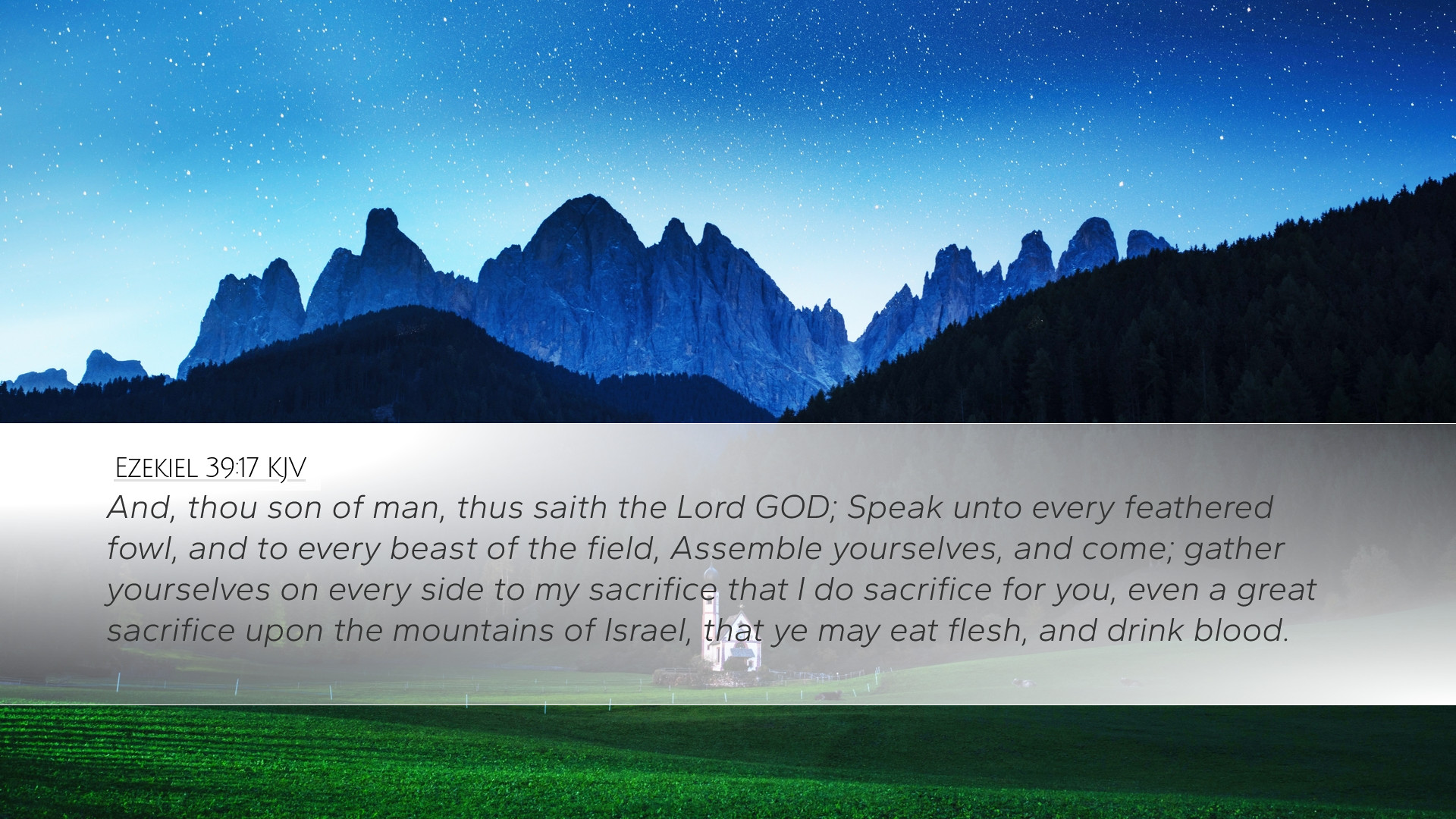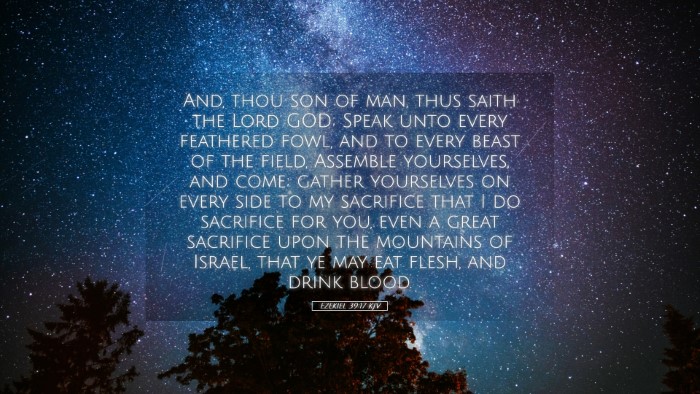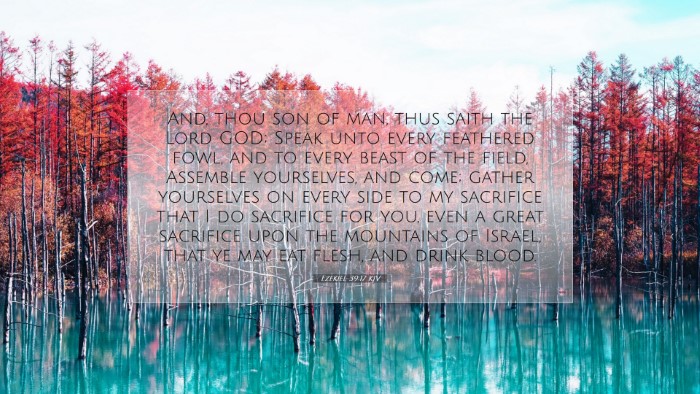Ezekiel 39:17 - Commentary Summary
Ezekiel 39:17: "And, thou son of man, thus saith the Lord GOD; Speak unto every feathered fowl, and to every beast of the field, Assemble yourselves, and come; gather yourselves on every side to my sacrifice that I do sacrifice for you, even a great sacrifice upon the mountains of Israel, that ye may eat flesh, and drink blood."
Introduction
The verse from Ezekiel 39:17 captures a vivid imagery of a divine invitation to the birds and beasts to partake in a great sacrificial feast orchestrated by God. It serves as a climax in the context of God's judgment against the nations and His eventual restoration of Israel. This commentary will synthesize insights from Matthew Henry, Albert Barnes, and Adam Clarke, providing a rich theological and practical understanding suitable for pastors, students, theologians, and scholars.
Contextual Background
The prophecies of Ezekiel were delivered during a tumultuous period for Israel, marked by exile and impending destruction of Jerusalem. Chapters 38 and 39 specifically address the prophecy against Gog and Magog, symbolizing the hostile nations that would rise against Israel. This passage transitions into God's ultimate triumph over these adversaries, depicting His sovereignty and the restoration of His people.
Divine Sacrifice and Sovereignty
This verse vividly illustrates God's dominion over creation. By summoning the birds and beasts, God demonstrates His authority to command even the most primal aspects of nature. This alludes to the notion of divine sacrifice where God's judgment functions as both an act of vengeance against the enemies of Israel and a preparation for a ritualistic feast.
The Invitation to the Creatures
As Matthew Henry notes, the phrase "Speak unto every feathered fowl" can be seen as a metaphorical call for God's retribution against nations symbolized by scavenging birds and predatory beasts. Here, the feasting birds constitute a divine judgment imagery where God uses their appetite to display the finality of His attack against His foes. The unclean animals participating in this banquet signify the complete destruction of those who opposed God’s people.
Symbolism of the Feast
Albert Barnes remarks that the reference to a "great sacrifice" emphasizes the magnitude and seriousness of God’s judgment. The act of consuming flesh points to the finality of the carnage intended for the enemies of Israel. This sacrificial imagery also serves as a foreshadowing of the ultimate victory for believers — deliverance from evil and the promise of God’s sustaining presence.
Theological Implications
Judgment and Restoration
The passage presents a dual theme of judgment and restoration. Adam Clarke highlights that while the text declares a grim fate for Israel's enemies, it simultaneously reassures Israel of God’s protective and restorative nature. This theme reinforces the understanding that God's justice paves the way for reconciliation and renewal, providing hope amidst despair.
The Role of Prophetic Fulfillment
Ezekiel's prophecy, and this verse in particular, is often viewed through the lens of prophetic fulfillment. The gathering of the creatures can represent the inevitable downfall of those who oppose God and the subsequent purification of the land for a renewed Israel. Pastors and scholars can utilize this understanding to highlight the necessity of divine justice as a precursor to redemption.
Pastoral Application
Encouragement in Faith
For pastors, this verse can serve as a source of encouragement for congregants facing oppression or conflict. It emphasizes the assurance that God reigns supreme and will ultimately enact justice. This can be a comforting message during times when evil seems to prevail.
Call to Righteous Living
The judgment depicted in this verse also calls believers to examine their lives. Through the lens of the sacrificial imagery, this verse implores the faithful to live righteously, emphasizing that God's judgment will come upon those who defy His commandments. It serves as an exhortation for personal holiness and commitment to God’s ways.
Conclusion
Ezekiel 39:17 is a profound verse that weaves together themes of judgment, divine sovereignty, and restoration. Through the insights of Matthew Henry, Albert Barnes, and Adam Clarke, a deeper understanding is gained regarding God's purposes amidst apparent chaos. As we reflect upon this verse, let us hold on to the affirmation that God is in control and that His actions, though sometimes severe, always culminate in the renewal of His people and the hope of a secure future.


